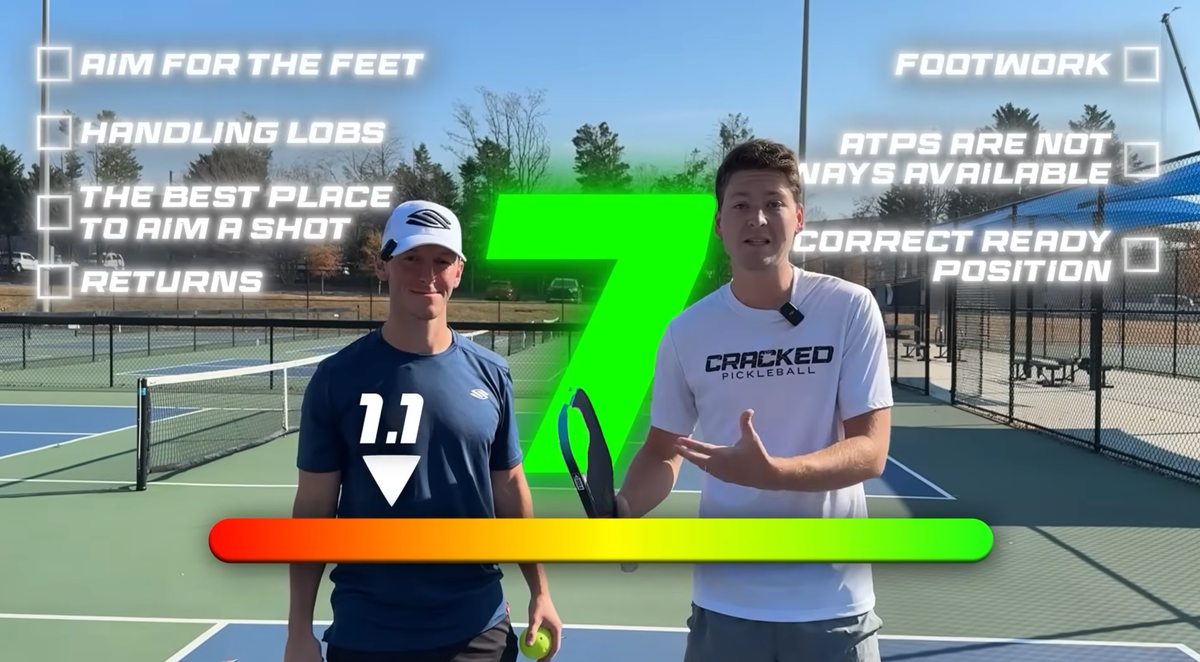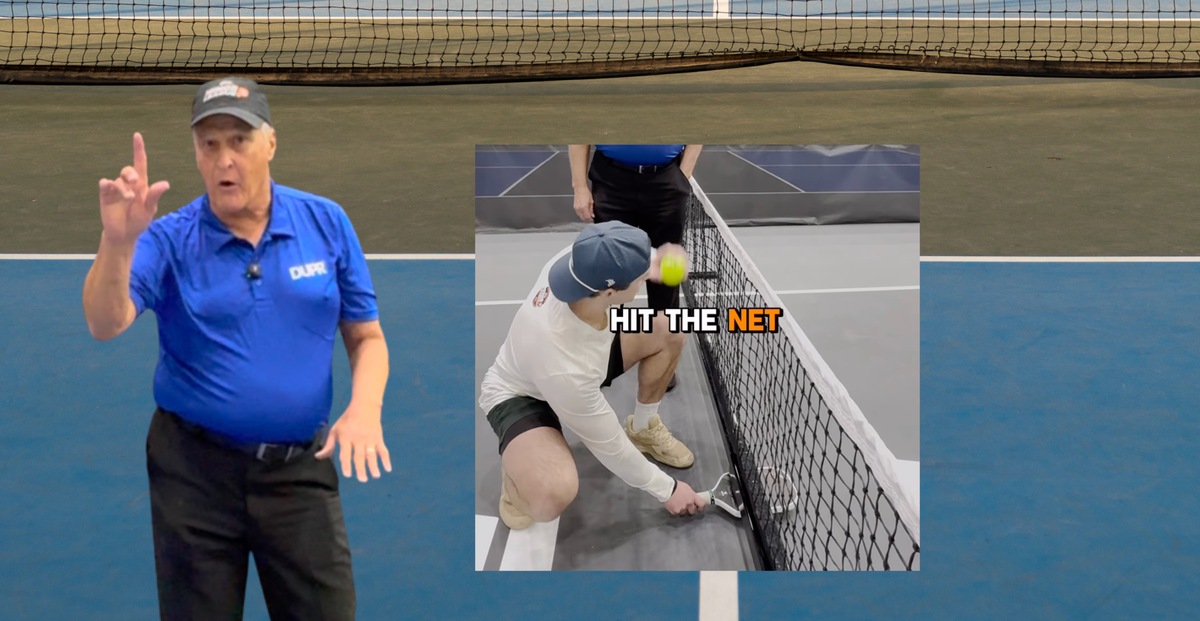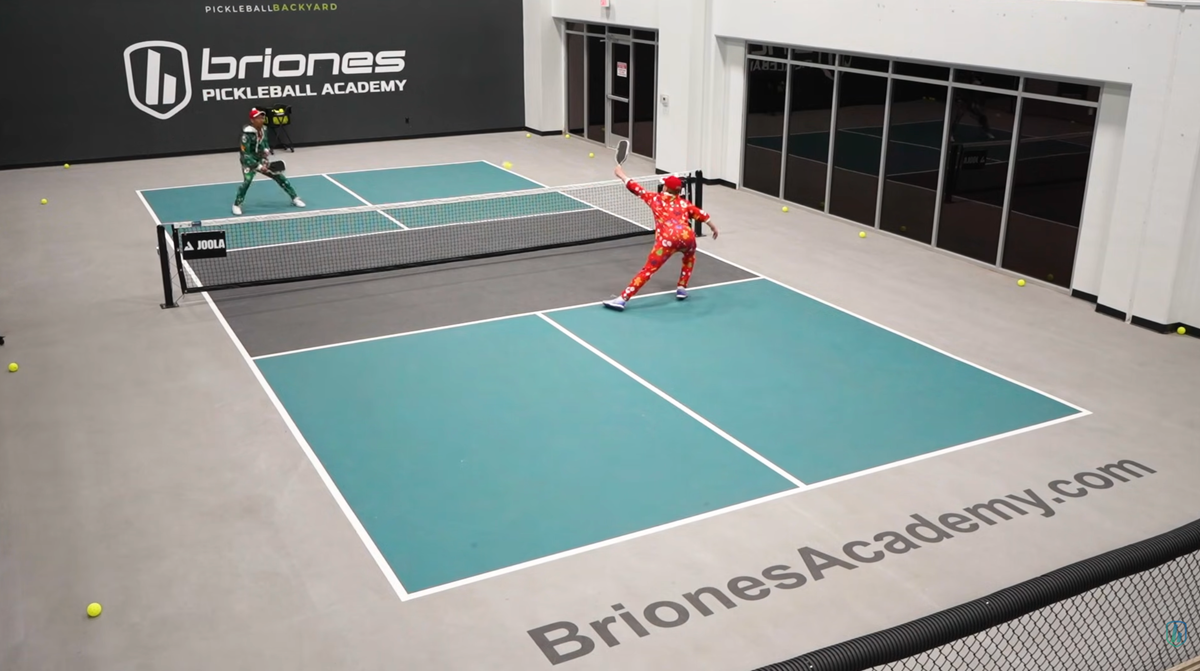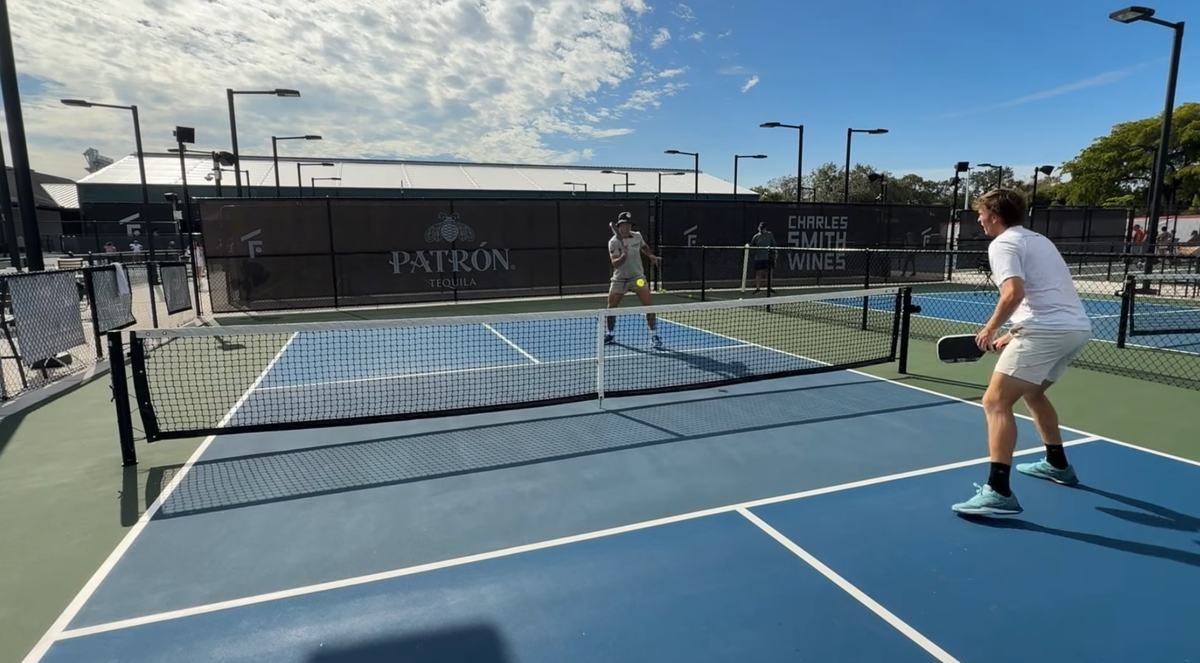By Mark Peifer, USA Pickleball Certified Referee; Past Chairman, USA Pickleball Rules Committee
QUESTION: Rule 13.D.1.c seems unique in that it is the only rule that allows me to enforce a fault on my opponent. It allows me to enforce a serve or NVZ foot fault. But, if my opponent doesn’t agree, then we replay. Why is this the case? What is the history of this rule?
ANSWER: This rule changed in 2019. Before 2020, if my opponents thought I had committed a foot fault, they could call it, and enforce it, and I had no recourse.
To put this in perspective, please allow me to share two scenarios on the rule; one before 2019 and one after the 2020 rule changed, which is the way the rule reads today as well. Let’s examine two similar scenarios.
Situation one. 2019 Rulebook in effect:
The score is 18-17 in the third game of a long non-officiated match played in 98°F temperature and 87% humidity. My opponents are serving. Both teams want to win but they are about spent. My opponents have called some suspect line calls in the match but not enough to cause my partner and me to ask for a referee. No NVZ foot faults have been called on or against either team.
My opponent hits a volley across the net and I hit a volley back. My opponent calls a NVZ foot fault on me. Point, game, match. I am adamant there was no foot fault and think he called this bogus foot fault just to get the match over. Actually, I’m certain of it and am furious. But, by the 2019 rulebook that’s it; my opponents get to make that call. There is no appeal avenue and no replay. This exact scenario is why the change was suggested for 2020; to prevent an unscrupulous player from calling non-existent foot faults. By the way, this is also why today’s players can’t enforce any other faults on their opponents; chaos could ensue.
Situation two. 2020 (and each subsequent year) Rulebook in effect:
The score is 18-17 in the third game of a long non-officiated match played in 98°F temperature and 87% humidity. Only this time my partner and I are serving.
I hit a volley across the net and my opponent clearly steps into the NVZ and smashes the ball for a winner. I’m convinced he’s done it several other times but I haven’t called it. I call it; he denies it so we replay it. With the new rule in effect and a replay available, my opponent can purposely foot fault, hoping that I don’t see it and call him on it. In effect, he can foot fault without fear or worry because he can always call for the replay. Again, the unscrupulous player can take advantage of the rule, but in this case, that same person can’t win a match by calling non-existent foot faults.
In each case, whether we are using the 2019 or today’s version of 13.D.1.c, it would appear as if we are trying to legislate honesty. I happen to think trying or saying we are trying to legislate honesty is a false narrative.
What the Rulebook writers and the USA Pickleball Board of Directors are doing instead is attempting to legislate fairness. Playing the point over far exceeds the unfairness of losing the match to someone who purposely cheated.
I can certainly see the other side of this argument, and frankly, there is no perfect solution to this, but the 2020 Rule change was considered the most ‘fair’ of the two options.
I hope that helps.
Source: The PicklerAnuncie Aqui / Advertise Here
Sua marca para o mundo Pickleball! / Your brand for the Pickleball world!

 English
English  Spanish
Spanish  Portuguese
Portuguese  German
German  Italian
Italian  Japanese
Japanese  French
French  Polish
Polish  Russian
Russian  Netherlands
Netherlands  Hungarian
Hungarian  Turkish
Turkish  Videos
Videos  The Pickler
The Pickler








 English (US) ·
English (US) ·  Portuguese (BR) ·
Portuguese (BR) ·